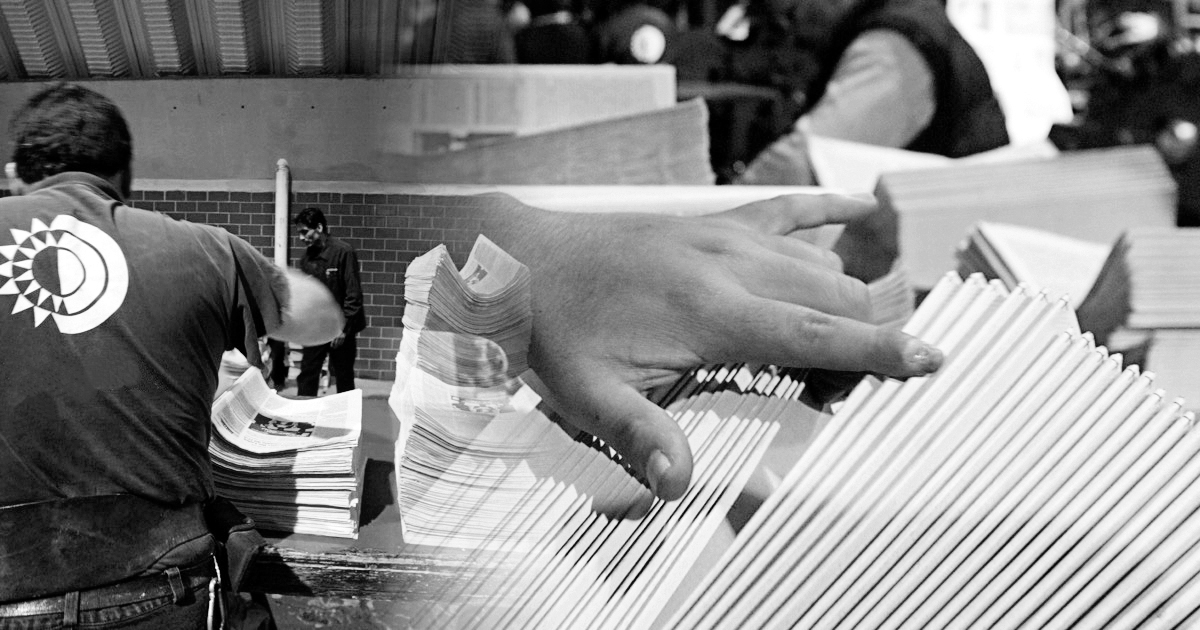William I Robinson*
L
to political elite and transnational corporations were back in Davos from January 16 to 20 for their annual conclave in the midst of the most severe crisis of global capitalism since the founding of the World Economic Forum (WEF) half a century ago. In previous years the participants in the exclusive meeting descended on the ski resort in their private jets brimming with confidence in the hegemony of capitalism. But this time, the uncertainty about his ability to manage the crisis, maintain control, restore the system and rebuild the fractured consensus in his ranks was in full view.
The WEF served as a clearinghouse and planning body for the transnational capitalist class (CCT) and its political allies at the height of globalization, but now the ruling groups seem to be on permanent crisis management. The Forum report for 2023, global riskscalled the global crisis as polycrisis,
with economic, political, military and ecological dimensions.
The WEF brings together the inner circle of the CCT and its political representatives in States and international organizations. Every year the cream of the corporate and political elite meet in Davos to assess the state of global capitalism, debate the issues and challenges they face as the ruling class, and consider programs and policies to address these challenges to their class domination. Simply put, Davos is where the capital’s lords strategize on how they will rule the orb.
The core of the WEF membership is made up of the CEOs of the world’s one thousand largest transnational corporations, along with representatives of the most powerful media groups, key policy makers from governments around the world and international organizations, and a selection of experts from the scientific, social and technological fields. The 2,700 participants in the 2023 meeting included CEOs of more than 600 corporations, 51 heads of state, 56 finance ministers, 19 central bank governors, 30 trade ministers, 35 foreign ministers and the directors of the main international organizations, such as the International Monetary Fund, the World Bank, the Central Bank of the European Union, the United Nations and the Secretary General of NATO.
WEF-driven globalization has resulted in an unprecedented concentration and centralization of capital on a global scale in the hands of the CCT. This globalization has unleashed unprecedented inequalities and unleashed social and political conflicts throughout the world. The Carnegie Endowment for International Peace reported just days before the start of the Davos meeting that more than 400 large-scale anti-government protests have erupted around the world since 2017, a quarter of them held for three months or more, many involving hundreds. of thousands and even millions of protesters, and no fewer than 32 were in progress as the conclave got underway.
In addition to the structural crisis of overaccumulation, the dominant groups face a political crisis of state legitimacy, capitalist hegemony, and widespread social disintegration; an international crisis of geopolitical confrontation, and an ecological one of historic proportions. For background context, a 2021 US government intelligence report warned that the world will face more intense global challenges
in the coming years, which “will produce widespread tensions in States and societies, as well as shocks That could be catastrophic.”
Attendees at Davos this year discussed the various dimensions of polycrisis
, but they seemed to be adrift on how to restore global capitalism and reject the threat of mass revolt from below, such as that of the populist right, nationalism and neo-fascism to capitalist globalization. The IMF CEO was forced to admit that the world economy is facing perhaps his biggest test since World War II
. Meanwhile, the Russian invasion of Ukraine in 2022 and the radical political, military and economic response of the West, together with the new cold War between Washington and Beijing, are accelerating a violent collapse of the postwar international system.
Each year, the development agency Oxfam schedules the release of its report on global inequalities to coincide with Davos; according to the report for this year Survival of the richest, the fortunes of billionaires are rising by $2.7 billion a day, even as at least 1.7 billion workers now live in countries where inflation outpaces wages. Amid the global food and energy crisis, the top 95 food and energy corporations more than doubled their profits by 2022, achieved $306 billion in windfall profits, and paid out $257 billion to wealthy shareholders, while nearly $1 billion people went hungry in the world. The report warned that three-quarters of the world’s governments are planning cuts to public spending over the next five years, including education and health care, by a whopping $7.8 trillion.
Fragmentation and geopolitical confrontation are reaching a breaking point. The crisis of hegemony in the international system takes place within this single and integrated global economy. The end of Western domination of world capitalism is upon us as the center of gravity of the global economy shifts towards China. But it will not become the new hegemonic power; rather, the world is turning towards political multipolarity at a time of acute crisis in global capitalism – protracted economic turbulence and political decline.
We are facing the decomposition of capitalist civilization. The WEF’s commitment to defend and expand the endless accumulation of capital on a global scale at all costs makes it impossible for the global ruling class to offer viable solutions to the crisis of the times. Addressing it involves a far-reaching downward redistribution of wealth and power, regulation of global markets, reining in transnational capital, global demilitarization, and radical environmental measures. Such solutions will only come from the mass struggle from below against the Davos ruling class.
* Professor of Sociology at the University of California, Santa Barbara

















